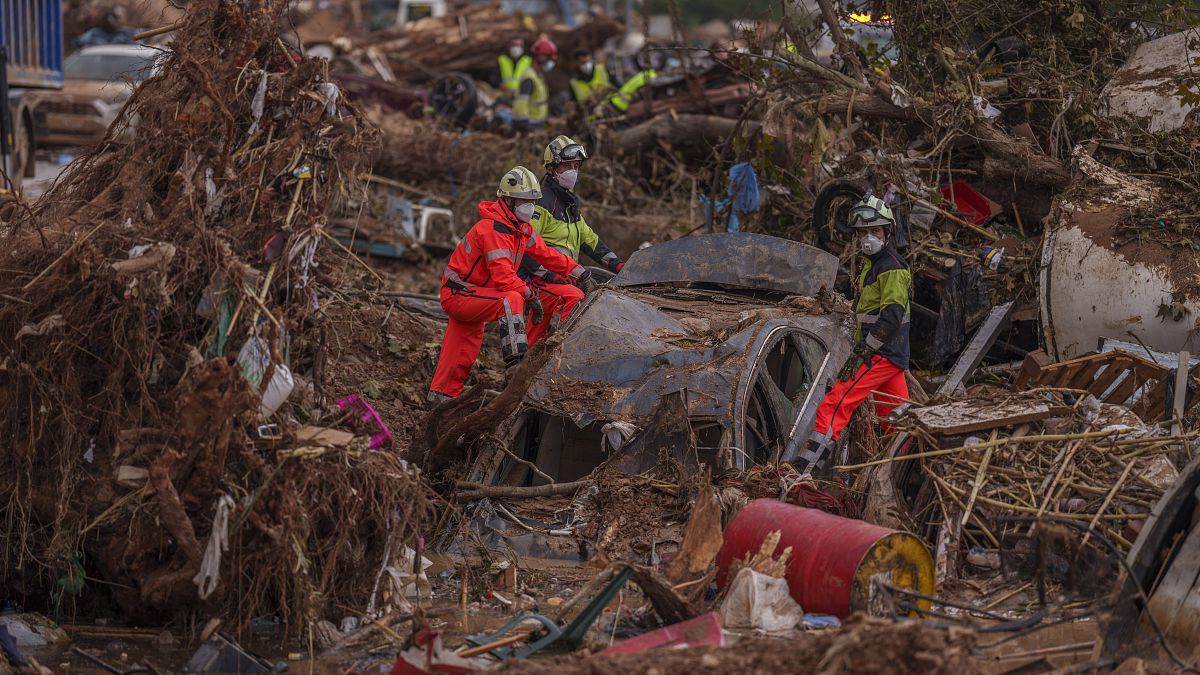The catastrophic flooding that recently struck the eastern region of Valencia in Spain has led to widespread devastation, with at least 222 people losing their lives. The disaster, which occurred on 29 October, saw torrential rain causing floodwaters to rise rapidly, resulting in chaos and destruction. The response to the flooding by the regional government has come under intense scrutiny, with tens of thousands of people taking to the streets in protest. Calls for the resignation of regional president Carlos Mazón have been made, but authorities have ruled out any immediate resignations, stating that stepping down at this critical time would be a betrayal of the victims.
As anger continues to grow over the handling of the catastrophic flooding, authorities in Valencia are facing mounting pressure to be held accountable for their response. In a rally held in Valencia, protestors clashed with riot police, leading to injuries on both sides. The regional government has stated that they will not abandon the victims of the disaster and are committed to providing support and aid to those affected. However, many are dissatisfied with the government’s handling of the crisis and are seeking answers and accountability.
The regional president, Carlos Mazón, has come under fire for initially blaming the central government led by Prime Minister Pedro Sánchez for the crisis. Mazón has promised to provide political explanations and details of the events when he appears in parliament later in the week. The central government, however, has indicated that the responsibility for the disaster response falls on the regional authorities, as the emergency was classified as a level two, making it the responsibility of the regional government to manage. Amidst these tensions, Spain’s national meteorological agency AEMET has issued alerts of the potential for heavy rains in the coming days, potentially leading to another weather-related disaster.
The aftermath of the catastrophic flooding in Valencia has left many areas in ruins, with the full extent of the damage yet to be fully assessed. The Consortium for Insurance Compensation estimates that the damages caused by the disaster will result in compensation payouts of at least €3.5 billion. The devastation caused by the flooding has highlighted the urgent need for better disaster preparedness and response mechanisms to be put in place to prevent such tragedies from occurring in the future. As Spain grapples with the aftermath of one of the worst natural disasters in recent history, the focus remains on providing support and aid to the victims of the catastrophic flooding.
In response to the chaos and destruction caused by the catastrophic flooding, efforts are being made to manage the crisis and provide relief to those affected. The protests and calls for accountability highlight the deep dissatisfaction with the government’s response to the disaster, with many questioning the lack of preparedness and timely alerts issued to the public. Moving forward, there is a growing urgency to implement measures to improve disaster response and mitigation strategies to better protect communities from such devastating events. With the threat of more heavy rains looming, it is essential for authorities to be proactive in their approach to prevent further loss of life and damage. As Spain grapples with the aftermath of the flooding crisis, the focus is on rebuilding and providing support to those who have been impacted by the disaster.


























